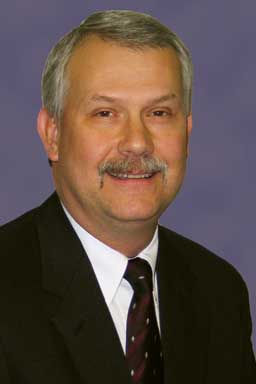Executive Director’s message: Being a swine veterinarian (May 2014)
At a recent social gathering, a woman I had just met asked me “just what is a swine veterinarian?” My quick answer in this type of situation is “we are pig vets.” Her response was typical as she said “I didn’t know pigs needed vets.” This exchange has been played out countless times in my career in a number of settings. It has included people on airplanes, friends, journalists, and pre-veterinary students. While a common occurrence, this time it came right after our annual meeting in Dallas. It caused me to ponder the question a bit differently.
One of the great things about our annual meeting for me is that it reaffirms my respect for our members who dedicate their professional lives to swine health and production. The depth and breadth of our meeting and its attendees reveals an impressive display of what it takes to be a swine veterinarian. The meeting itself is an exercise in witnessing the characteristics of swine veterinarians. From the committee meetings, the seminars, the sessions, the board meeting, the technical show, and the hallway, you can see them in action. Since I only have one page to fill, I will highlight what I see in swine veterinarians. I am sure you can come up with other characteristics.
Swine veterinarians are focused on problem solving. This focus is intensified due to what is at stake on a farm and the veterinarians’ personal stake providing the best service to clients. Science (ie, evidence-based medicine) is a large part of swine practice, but it is balanced by what I consider to be the art of practice. Combining the science and the art is a skill that is developed and refined over time. However, I am encouraged to see many young veterinarians entering swine practice who seem to already have an understanding of this aspect of swine practice. I believe that this is a result of effective mentorship and education.
Another characteristic is the ability and inclination to challenge ideas and ways of doing things. This might be on an individual farm or in a practice or on the broader stage of the profession. It is driven by reluctance to be trapped by the status quo on things that matter. It is supported by a willingness to have open and frank discourse with farmers, colleagues, and other involved parties. I have witnessed numerous discussions where two or more swine veterinarians have started on opposite sides of an argument and engaged in vigorous debate. At the end of the discussion the veterinarians may not have agreed, but all benefitted by an expansion of their thinking and consideration of the problem at hand.
Swine veterinarians have a real compassion for both people and pigs, especially when confronted by difficult situations. One only has to hear the stories of porcine epidemic diarrhea virus devastation on farms to feel the empathy and concern for those on the affected farms, animal and human alike. It is evident in the description recounted to me by one of our members, telling a farrowing manager on a newly-infected farm that she would potentially lose every pig born for the next 4 weeks. I believe that this scene has been replayed on farm after farm over the last 10 months with similar emotions evoked by the loss.
I see our members willing to stand up for what is right for the pig. This was certainly evidenced at the 2014 annual meeting with its emphasis on the veterinarian’s oath. In today’s media-driven culture, this is not always the popular or easy thing to do. Increasingly we are dealing with an un-informed public that is far removed from the farm. This is complicated by increased activity by organizations that are anti-agriculture. The challenges are not just with the public, since the same phenomenon is being seen within our profession. Siding with the pig rather than bowing to activist pressure often exposes swine veterinarians to criticism as being “too close to the industry (ie, producers).” This disparaging criticism can include some who call into question our ability to be objective. Our members have excelled in their ability to withstand this pressure and maintain pig health and welfare as our utmost concern.
I have had the privilege to belong to the AASV for my entire career and to work for the association for 20 years now. Over that course of time, my admiration for swine veterinarians has grown. My interactions with our segment of the profession have left no doubt in my mind that swine veterinarians go to work every day with their hearts and minds set squarely on the pig. Whether it is seen in their attention to the small details on a farm visit or their willingness to think big on behalf of the profession and the producers they serve, swine veterinarians demonstrate the characteristics that set them apart.
— Tom Burkgren, DVM; AASV Executive Director
